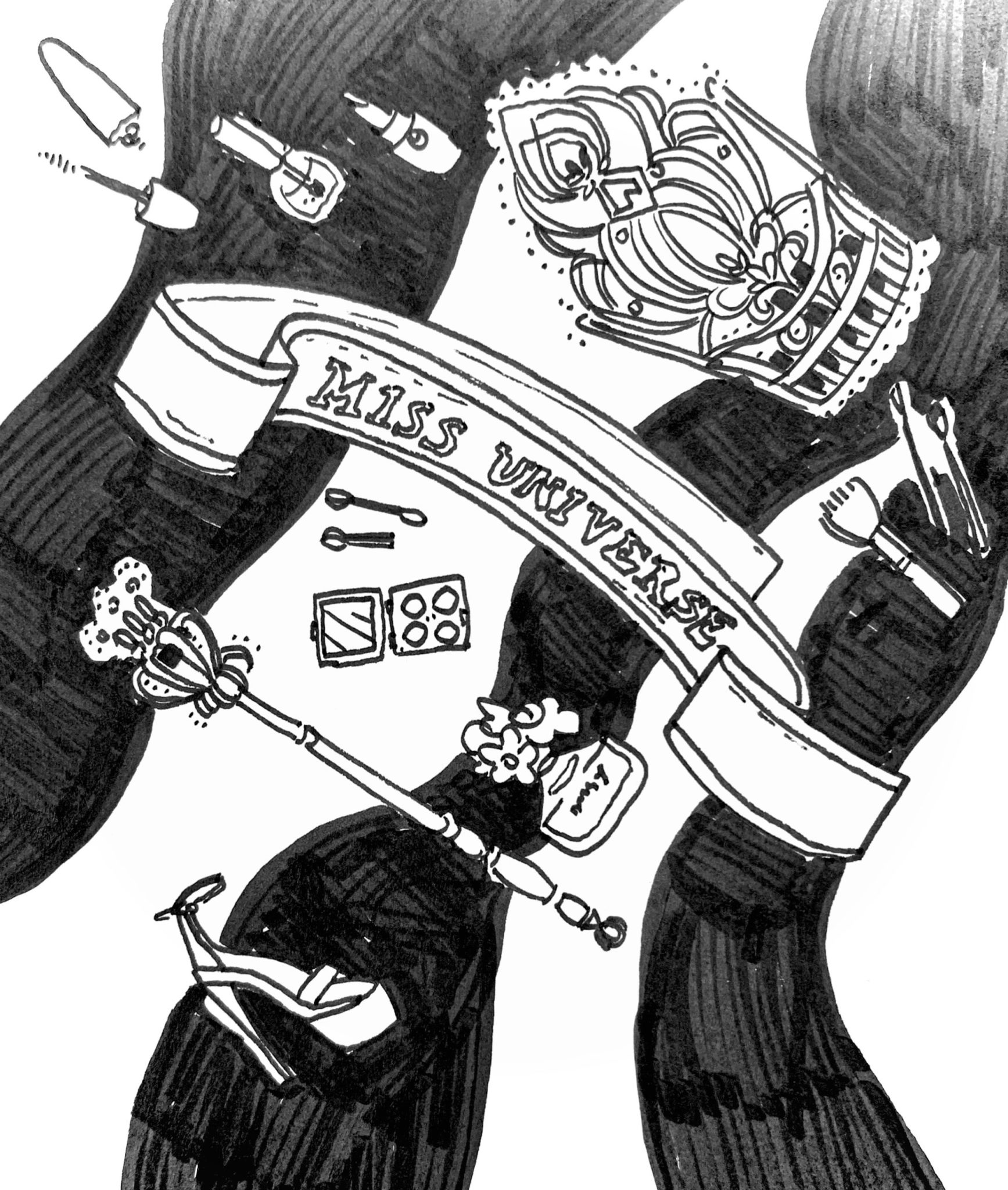
Dora Guo
In every icebreaker game of Two Truths and a Lie, I weaponize my most unbelievable fun fact: I competed for Miss America. Twice.
I never expected to be associated with the pageant community — and I certainly never expected to use the phrase “pageant community” unironically. I competed for a local “Outstanding Teen” competition on a whim, channeling my competitive dance background and affinity for public speaking into what I expected to be a weekend-long pageant stint. It wasn’t until the stage lights dimmed on competition night before the winner reveal that I suddenly realized there was a decent chance they might call my name. For me, “Shut Up and Dance” isn’t just a pop relic of the mid-2010s, the song is a reminder of the long 30 seconds I spent squatting at the front of the stage while an outgoing titleholder pinned a rhinestone crown on the top of my teased hair.
My initial shock at being named “Miss Yorba Linda’s Outstanding Teen” was quickly surpassed when I found out that, as a local titleholder, I would compete again at the Miss California statewide competition. I was warned about the contestant pool, which was dominated by veteran competitors who returned year after year with hopes of walking away with the state title, many of them homeschooled so they could focus on their pageant prospects. I soon faced 50 of these crown-chasers, each vying for the esteemed state title — think “Lord of the Flies” with platform heels and spray tans. The backseat of my mom’s car overflowed with cocktail dresses, strappy sandals and rhinestone jewelry as we made the five-hour road trip through central California farmland to Fresno.
I can remember the feeling of my heels clicking as I approached the neon taped X-mark on the center of the stage. I raised the mic up to my lip-lined smile to announce myself: “Colby Bladow, Miss Yorba Linda’s Outstanding Teen!” Like a modernized “Last Supper,” a long judge’s table was set up at the front of the theater, each place had a score sheet and pen, arming them to score my walking and talking out of ten.
I knew how crazy this was. I rolled my eyes when women with names like Ashleigh Grace and Lily Mae — in the pageant circuit, superfluous second names or creative spellings of generic girly names are as common as eyelash extensions — told me that walking on a stage in a swimsuit is the most empowering thing they have ever done.
Still, I learned to confidently walk in platform heels. I can solve the world’s greatest issues in a 30 second response to an onstage question — alas, I never fulfilled my dream of integrating the phrase “world peace” into one of these answers. I know how to hairspray a leotard onto my body so it doesn’t budge. I have been sprayed with layers of tanning solution while completely nude, to prevent the disaster of “disappearing onstage” if my skin was too pale.
I was constantly frustrated, exhausted and irked during competition. I experienced more gossip and backstabbing than I had ever experienced before. I was subjected to power-hungry stage managers and program directors who reprimanded us for the most minor of missteps. I felt silly gluing caterpillar-like fake eyelashes onto my eyelids, pinning a crown onto my head for photo opportunities and waving at the crowd each night, having been taught to use four sweeping motions: elbow, elbow, wrist, wrist — arm nearly straightened to avoid any unwanted upper arm jiggle.
I could write a very different piece about how pageants affected me: they took up two formative years of my teenage life, they told me that I was only presentable in a full face of makeup, they convinced me that eating bread could only end in personal disaster and they let me take people who said things like “Your gown would look so much better if you just lost a half a pound!” seriously. At Miss California, our phones were snatched away for the week to push us to make real connections with the “sisters” we were competing against; really, this just made me suffocate in clouds of hairspray and passive aggression without a link to the outside world.
I knew what to expect for the finale of the pageant: the emcee would list each runner-up in descending order. She would announce the winner last. I joked with my family that I hoped to earn the first runner-up spot, second place to the crown. “All of the glory, none of the commitment,” I told them. As I stood on stage, awaiting the pageant results, I realized I wanted my name to be called last. No matter how trivial or superficial pageantry seemed, I wanted to win. I wanted a bigger crown and a flashier title. I wanted congratulatory cheers and confetti thrown on the stage in my honor.
And after a few years and a lot of reflection, I’m proud to reveal: I got second place.







